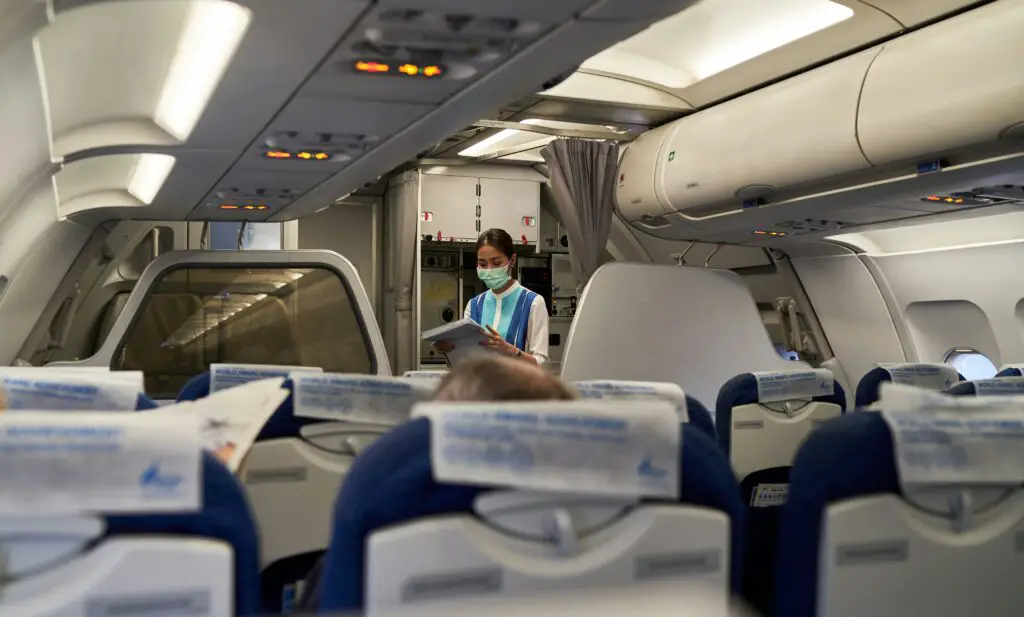Related Posts
As our technology continues to advance, privacy is an ever-increasing concern. With cell phones, high-tech cameras, and audio-recording devices, our ability to record others has become more accessible. While it may sound small, taking a video of someone without their consent can be a pretty serious offense. To help clarify the rules of recording conversations, many states have created specific privacy consent laws. Today, we will investigate the question, “Is California a two-party consent state.”
California Airport Viral Video
In this viral airport video, someone records an airline worker yelling at a group of passengers. She tells the passengers to shut up and rhetorically asks, “Do you want to get on this flight or not?”. The cameraman then pans over to another airline worker. This worker angrily tells the man that California law requires both parties to consent to a recording. The man apologizes, quickly ending the video.
Is this woman correct? Is California a two-party consent state? If so, when are you allowed to record people in a two-party consent state?
What is a Two-Party Consent State?
The idea of one and two party consent states arises from the creation of wiretapping laws. As improved technology allowed people to record private phone conversations, lawmakers sought to protect citizens’ privacy. Wiretapping laws often govern all forms of communication, including private phone calls, video chats, and discussions.
In a two-party consent state, both parties must consent to a private conversation being recorded. Violating these privacy laws can often result in civil lawsuits and misdemeanor charges.
Is California a Two-Party Consent State?
California is one of the few two-party consent states in America. Only 11 states have created and maintained two party consent laws in the country. Each state may have unique verbiage and rulings on the issue.
California’s two-party consent laws fall under the California State Penal Code § 632. This code specifies that the laws protect “confidential communications.” In simpler terms, the law protects privacy only when one of the parties reasonably believes they are in a private setting. For instance, a person in their home should reasonably expect others not to record them.
Like many laws, the specifics of “confidential communications” can get muddy. Some places that may seem public can arguably have semi-private areas to speak. Always ask for permission before recording, even in a reasonably public area, to ensure compliance with consent laws. In a situation where you may have accidentally recorded someone without their permission, it may be in your best interest to consult a legal professional.
Exceptions to Two-Party Consent Laws

The issue of recording conversations isn’t always cut and dry, even in states with clear consent laws. Take a look at some of these exceptions where it may not be illegal to record someone:
- During public conversations: California’s two-party consent laws clarify that discussions in public places generally lack protection. In public settings, people assume others nearby can overhear conversations. Similarly, filming or using cameras in public areas is allowed and not restricted by two-party consent laws.
- Law enforcement use: Two-party states like California may also have rules allowing law enforcement to use wiretapping or other surveillance equipment. As long as these procedures follow police enforcement regulations, they are entirely legal.
- Journalism: Some jurisdictions grant journalists more leeway for private recording, but they are still expected to follow ethical guidelines and seek consent whenever possible.
- For public safety or crime prevention: if someone reasonably believes that recording a conversation will protect the safety of themselves or others, it is legal. For instance, recording evidence that could prevent or stop a crime, such as bribery, extortion, or human trafficking, are all situations where someone could break a two-party consent law.
Is the Airport Worker Correct?

Concerning the statement made by the airport worker in the video, she is correct that California is a two party consent state. Thus, in private conversations, it would be illegal to record without the consent of both parties.
Taking the facts of the situation into account, the airport was a very public space. With numerous people standing in very close proximity to the worker, she should have no reasonable expectation for conversational privacy. Federally, recording other people in public is legal as long as the recording is appropriate.
As a private business, the workers would have a right to ask the man to leave or refuse his plane entry. Regardless, the airport worker is incorrect when it comes down to two-party consent laws in public spaces.

